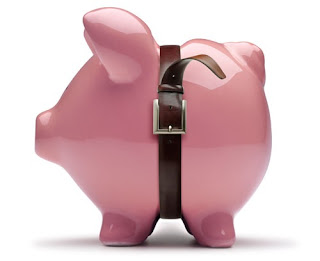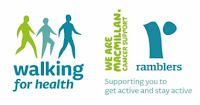I’m BROKE, skint, poor,
totally cleaned out, penniless, ruined, far too overdrawn, in debt, in the red,
owe a lot, rent is overdue….. you get the picture!
This month has been a
crazy one, summer months always are – there are friends and families birthdays,
house moves, pregnancies, relationships, anniversaries etc to celebrate, then
the sun comes out and there are bbq’s, garden parties, beaches, parks, walks,
mini breaks, picnics and the rest…then of course you need to add in the summer
festivals, gigs and shows, the school summer holidays and perhaps a
holiday/break for us too…… I LOVE IT, but sadly it all adds up and right now the credit
card is aching under the strain, the overdraft is bursting at the seams and
something has to give!
So I’ve reigned in the
socialising, the parties and the gigs.
There won’t be a holiday this year, but if we do things right we may be
able to get a weekend away, still take walks and picnic on the beach, and of
course see friends and family (they can feed us right?)….
BUT often the first
thing that slips when I’m broke is my diet.
Especially in the summer time I love to eat fresh fruits and salads and
veggies, but buying the good stuff is expensive. Plus, as the sun is out so (usually) are the
legs and arms - more flesh, so I want to keep in tip top shape, showing off
toned and possibly tanned arms and legs, rather than the pasty winter blubber
that’s previously been hiding under coats and cardis….
So this year I’ve come up with some ideas to help myself keep fit,
healthy and happy on a budget – here are my top 5 tips: There are lots of other things you could do, but I'm trying
these to start with. If you’re in the same boat as me this time of year maybe these ideas will give you some inspiration too.
no nonsense nita's top 5 ideas for staying healthy on a budget
1. CARBOHYDRATES
Don’t curb the carbs. I know it’s been a “thing” in the world of
dieting and weight loss, but that’s not exactly what we’re aiming for
here. We are aiming for eating well and
healthy on a budget. Yes – protein and
fiber are great filler uppers too, but tend to be more expensive than most
starchy carbohydrates, so while on a budget I suggest choosing the GOOD carbs
and incorporating them into your meals to keep fuller for longer and to bulk up
a lot of dishes.
For example, adding brown rice to soups
and stews (maybe not so much stews in the summer, but a good healthy filling
soup for dinner is like a little evening hug!), or adding whole wheat noodles
to a stir fry (bulks it up, gives you more dish, more portions, keeps you
fuller for longer), or perhaps eating cold rice or pasta salads - simple, cheap, filling and healthy when made yourself.
2. LEFTOVERS
Learn to embrace your leftovers. Firstly, leave some. So when you cook a big meal, you don’t have
to eat it all. Stop when you start to feel
full, not when the food is finished!
Then store the leftovers to use for another meal the next day. You can do this when eating out too – take
away a doggy bag so you have some great ingredients to reuse, or the rest of
your meal to reheat later on. At home,
my best example for leftovers is a
Sunday roast: You can make a chicken soup from the roast chicken carcass
(there is a great chicken soup recipe in my previous blog: http://nononsensenita.blogspot.co.uk/2015/07/no-nonsense-chicken-soup.html have a bubble and squeak brunch
the day after using left over roast potatoes and veggies, and for anything else
left – blend it. You know the flavours
work well together, well add a bit of stock and blend the leftovers to a soup (adding
rice/barley etc for a thick and filling broth)
3. SHOP SMART
a) Make a meal plan and stick to it – whether that’s for the next few days or (as I try to do)
for the week ahead. This way you will
get yourself a shopping list together with only the ingredients required for
those meals – sticking to it means you won’t overspend on items that you may
not need or that don’t go with anything else you have.
**Check the cupboards when making the
list. This way you avoid buying any more
of an item you already had in, and it will give you inspiration and ideas for
your weekly meals based on what you do already have.
**Build your meals and therefore your list
around items already in the freezer or in the cupboard or left over
b) Don’t do the food shopping when you’re
hungry! It should go without saying, but
eat first, otherwise you will be tempted to buy snack foods, junk foods, and
ultimately more expensive bits and pieces
c) Don’t buy junk food – it’s easier said
than done, but for one convenience foods are more expensive and for two most of
the time, they are not too good for you – both the exact opposite of what we
are aiming for here – we are looking for healthy foods on a budget. Keep the junk food out the trolley, therefore
out the house, and out our mouths and bellies!
d) Use CASH only.
This way you can budget
and spend only what you have. If you go
over at the checkout, then you need to put something back. You can budget for the week (as we are doing
for everything at the moment) but especially for the food shop. If you have your list you will have an idea
of how much the meal ingredients will cost, therefore that’s how much cash you
should take with you. You may do more
than one shop a week, that’s fine, but when the cash runs out don’t take anymore
until the next week. Its harsh but will
teach you a good lesson as you see where the spending really happens.
e) Finally on the shopping tip – go at the
end of the day when the supermarket is closing, or when the offers are on/the
foods are discounted. I find I can get the
fresh or cooked foods especially from deli counters for a discount at this
time, so can either buy more or buy better quality for the same price. OR this
way I sometimes have some money left over to go towards other things…..like the
socialising, the holiday savings etc
4. DITCH THE GYM
No, not the usual advice from a health/fitness/nutrition blog, but when we are thinking about being healthy on a budget –
budget being the optimum word here – the gym membership is often eating away a
big chunk of money each month. You need
to figure out how many times a month you visit your gym compared to the amount
you pay for the privilege then decide if it’s really worth it. If you love using the gym, shop around. There are so many pay-as-you-go, or non-contract
gyms out there these days. You may not
have to give it up entirely, but you could save a lot of money moving, changing
your contract, or taking classes instead.
Also you could earn yourself a good few freebie sessions by asking for a
taster on any new gyms you visit. Try
before you sign up – ask if you and a friend can come in and get yourself a
couple of free passes. This time of year
most people are in their routines and not giving up or moving around gym wise
(not like new year when there are offers galore), so it’s a good time to try
your luck and wangle the free passes.
Alternatively, giving it up completely
and working out at home or outdoors in the summer months will save you even
more money while still keeping you fit and healthy. Check out free podcasts from the NHS for
example to get running outdoors http://www.nhs.uk/Livewell/c25k/Pages/running-podcast.aspx or in the living room use the laptop to tune into YouTube
fitness videos. They are all there – you
don’t need a PT or class, you can learn almost anything off YouTube these days! Another alternative is to dig out the workout
DVD’s that are gathering dust at the back of the cupboard, or get into the local
library and hire some.

You will be amazed at what you find and as long as you
schedule in some time for indoor or outdoor exercise in the same as you would
have done for gym time, or spin class etc then you’ll be fine.
5. WALK
Walking is our no.1 form of exercise. As a fully qualified Walking for Health walk
leader I’m always banging on about the benefits of walking. Get out and walk everywhere you can. You can
search and find local walking schemes and groups here: http://www.walkingforhealth.org.uk/walkfinder
If you usually bus your commute get off
a stop earlier (same goes for the tube) and get on a stop later. If you find this means you’re only taking
public transport a couple stops, then walk the full distance. Maybe just do this on the way home when you
don’t have to rush – I know I don’t like walking to work and arriving out of
breath or hot and bothered, but on the way back its fine – a wind down at the
end of the day before a quick shower and healthy dinner. It’s basically a good budget idea to
incorporate movement wherever you can – not taking the car saves on petrol,
getting off a stop earlier may mean you’re still in a cheaper zone so reduces
your travel card cost.
So there you go – our top
5 tips – the ones I will be sticking to for the next couple of months for
sure…. Good luck with sticking to whichever ones you choose or if you have
other tips of your own let us know.
You can get involved via Facebook. Tweet us @nononsensenita – Twitter. You can also
follow us on Instagram and Pinterest
As usual if you have any queries you can also contact is at info@nitakothari.com, for consultation or workshops etc contact bookings@nitakothari.com and for anything else www.nitakothari.com
**Please remember this is nutritional
advice ONLY (as is all other information and advice contained in this blog and
the websites and social media related to it) – none of the info or advice is
intended to override any recommendation from your GP or health professional**






No comments:
Post a Comment